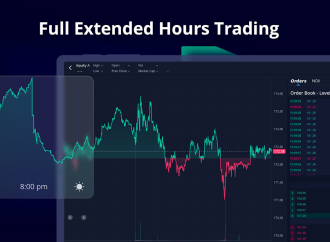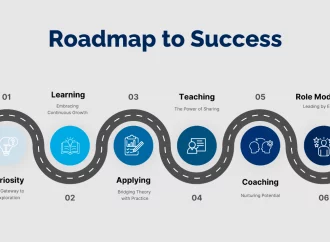In the world of smart speakers, Alexa reigns supreme. But with great power comes great responsibility – and Amazon’s ambitions for their digital assistant may have contributed to its shortcomings. In this blog post, we’ll explore why Alexa’s impressive capabilities may not be enough to keep up with its lofty goals, and what Amazon can
In the world of smart speakers, Alexa reigns supreme. But with great power comes great responsibility – and Amazon’s ambitions for their digital assistant may have contributed to its shortcomings. In this blog post, we’ll explore why Alexa’s impressive capabilities may not be enough to keep up with its lofty goals, and what Amazon can do to ensure it continues to dominate the market.
Amazon’s history of big dreams and acquisitions
Since its founding in 1994, Amazon has been known for its big dreams and audacious ambitions. From its humble beginnings as an online bookstore, Amazon has expanded into a behemoth that now sells everything from books to groceries to streaming video. Along the way, Amazon has made a number of high-profile acquisitions, including the purchase of Whole Foods Market in 2017.
While Amazon’s history of dreaming big has contributed to its massive success, it may also have contributed to some of the company’s recent shortcomings. In particular, Amazon’s aggressive expansion into new markets and industries has led to some major missteps, such as the company’s failed Fire Phone.
Still, it’s hard to argue with Amazon’s track record of success. The company continues to grow at an incredible pace and shows no signs of slowing down anytime soon. Thanks to its long history of big dreams and bold moves, Amazon is sure to remain a major player in the tech world for years to come.
How those ambitions may have contributed to its shortcomings
Many have praised Amazon for its ambition, but some say that these big dreams may have contributed to its shortcomings. For example, the company has been criticized for investing too much in new initiatives and not enough in developing existing products. This has led to some products being released before they are fully developed, which can result in poor user experiences. Additionally, Amazon has been known to copy successful products from other companies instead of innovate on its own. While this strategy can sometimes lead to success, it can also backfire when users realize they could get a similar product elsewhere for a lower price. Finally, Amazon’s aggressive expansion into new markets and industries has sometimes come at the expense of customer satisfaction and quality control. In its haste to become the everything store, Amazon has made mistakes that have cost it dearly in terms of both money and reputation.
Some of Amazon’s most ambitious projects
In its short history, Amazon has accomplished a lot. It’s the largest online retailer in the world. It has developed groundbreaking technologies like the Kindle and the Echo. It has upended traditional brick-and-mortar businesses like bookstores and grocery stores.
But for all of Amazon’s successes, it has also had its share of failures. The company has launched a number of products and services that have flopped, and it has been criticized for its treatment of workers and its impact on the environment.
Some observers say that Amazon’s ambitions may be to blame for its shortcomings. The company is always looking to push boundaries and innovate, which can sometimes lead to missteps.
Whatever the reason, there’s no question that Amazon still has a lot to prove. The company is now facing more scrutiny than ever before, and it will need to deliver on its promises if it wants to maintain its position as one of the world’s most powerful companies.
Why some analysts are skeptical of Amazon’s future
Since its inception, Amazon has been a company that takes big risks and strives to be at the forefront of innovation. This has led to some major successes, such as their creation of the Kindle and the development of Amazon Prime. However, it has also resulted in some failures, such as the Fire Phone. Some analysts are skeptical of Amazon’s future because they believe that the company’s penchant for taking risks may eventually lead to its downfall.
Investors are worried that Amazon is pourings resources into far-flung projects with no clear path to profitability. The company is currently developing drones for package delivery, working on a plan to deliver packages via balloon, and investing in numerous other inventions with no guarantee that any of them will ever become commercially viable. While this type of investment may eventually pay off, it is also risky and could result in huge losses for Amazon if any of these projects fail.
In addition, analysts are concerned about Amazon’s competitive advantages eroding over time. The company has long depended on its low prices and vast selection to attract customers, but now other retailers such as Walmart are starting to match or even beat Amazon on price. And as more companies enter the e-commerce space, competition is only going to increase. It remains to be seen whether Amazon will be able to maintain its position as the top online retailer in the years to come.
Amazon’s response to its critics
Since its inception, Amazon has faced criticism from various groups and individuals. Some of this criticism is due to the company’s size and market dominance, while other criticisms are leveled at its business practices. Amazon has responded to its critics in a number of ways, including by engaging with them directly, changing its policies in response to public pressure, and investing in research and development to improve its products and services.
Critics of Amazon’s size and market dominance argue that the company is a monopoly that uses its power to crush smaller competitors. They also argue that Amazon’s low prices are unsustainable and will lead to job losses and lower wages for workers. Amazon has responded to these criticisms by pointing to its customer focus and commitment to innovation. The company has also invested heavily in automated technologies, which it says will help it keep prices low while ensuring high levels of customer satisfaction.
Critics of Amazon’s business practices have accused the company of unfair competition, tax avoidance, and mistreatment of workers. These critics argue that Amazon’s actions hurt small businesses, stifle innovation, and harm the environment. Amazon has responded to these criticisms by arguing that its business practices are legal and compliant with all applicable laws. The company has also invested in sustainability initiatives, such as renewable energy projects, to address some of the concerns about its impact on the environment.
Conclusion
Despite its shortfalls, Amazon’s ambitions remain impressive. The company has been able to use its market power and resources to drive innovation and bring products like Alexa into the public consciousness. Although it may not have achieved full success with all of its endeavors, the sheer scope of Amazon’s ambitions underscores that the company is a force to be reckoned with in our digital world.





















Leave a Comment
Your email address will not be published. Required fields are marked with *